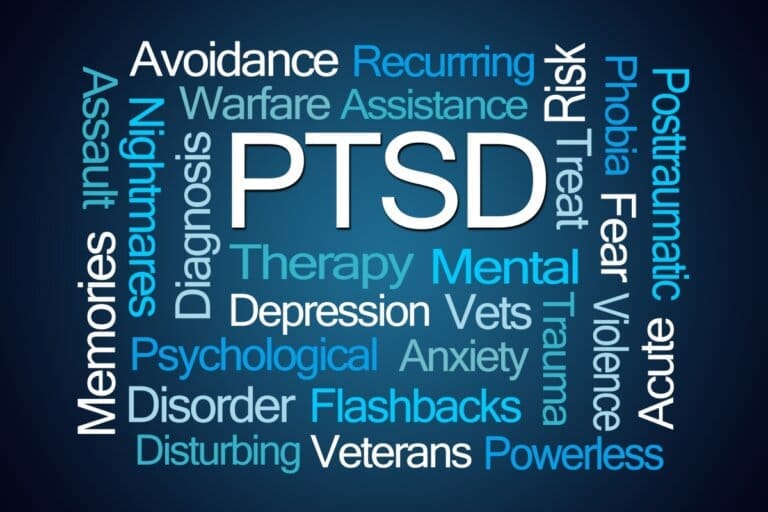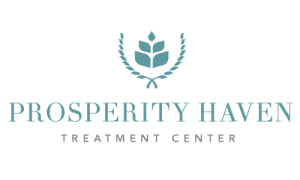PTSD and Addiction - How To Get Dual Diagnosis Treatment
- May 15, 2023
- Prosperity Haven
- Addiction Treatment

PTSD and addiction unfortunately often go hand in hand. People who seek treatment for PTSD are fourteen times more likely to be diagnosed with a substance use disorder. And those with addiction problems are more likely than the general population to be retraumatized, due to the lifestyle that addicted people often have.
What’s more, treatment for both of these disorders can be more challenging than addressing just one of them. However, this is exactly what needs to be done, as it is not possible to heal one without healing the other.
It isn’t all doom and gloom, though. Both of these disorders can be treated effectively, so long as the treatment center you choose has experience treating them. Read on to find out everything you want to do about PTSD and addiction, and how to get treatment for them.
What is PTSD
Post-Traumatic Stress Disorder (PTSD) is a mental health disorder that affects people who have experienced a traumatic event. It can cause flashbacks, nightmares and severe anxiety, as well as intrusive thoughts about the traumatic event. PTSD is common in survivors of physical or sexual assault, natural disasters, war veterans, and other extreme situations.
Symptoms of PTSD
Symptoms of PTSD can be thought of in a few different categories. The first of these is intrusive memories. These involve re-experiencing traumatic events through flashbacks or nightmares. People with PTSD also often engage in avoidance, which means avoiding certain people, places, events, conversations and activities that remind the person of the trauma.
Someone with PTSD might have negative changes in thinking, and have difficulty concentrating, feel depressed or detached, and have negative thoughts about themselves or other people. Someone with PTSD might also have arousal or reactivity, meaning that they are easily startled, feel tense or on edge, having trouble sleeping and have outbursts of anger.
Treatment for PTSD
Effective treatment for PTSD often involves psychotherapy. Two of the most effective types of psychotherapy are cognitive behavioral therapy (CBT) and dialectical behavioral therapy (DBT). It is possible to also include approaches like yoga, meditation and mindfulness, to help support the recovery process.
Complex Post-Traumatic Stress Disorder (C-PTSD)
C-PTSD is a type of PTSD that is caused by prolonged or repeated trauma, such as in cases of domestic violence, human trafficking and childhood abuse. C-PTSD has the same symptoms as PTSD but also includes changes to the person’s sense of self, difficulties with relationships, issues with emotional regulation, and difficulty managing strong emotions. Treatment for C-PTSD also includes CBT and DBT, as well as somatic therapies and exposure therapy.
How PTSD Leads to Addiction
PTSD sufferers are at a higher risk of developing addiction for a variety of reasons. People with PTSD often have difficulty regulating their emotions, which can lead to using drugs or alcohol as a way to cope and numb out painful feelings. People with PTSD may also be more likely to engage in risky behaviors like substance use as a way of experiencing pleasure and relief from the emotional distress they feel.
PTSD sufferers may also use drugs or alcohol to avoid facing triggers and memories that are associated with the trauma they experienced. The substances can act as a form of self-medication, allowing the to temporarily numb out intense feelings of fear, guilt or shame. People with PTSD may also be more prone to using addictive substances in an attempt to manage their symptoms of insomnia or depression.
Drug and alcohol addiction can also have a negative impact on PTSD, creating another layer of stress and exacerbating the trauma-related symptoms. For example, substance abuse can increase agitation, irritability and impulsivity in people with PTSD. It can also interfere with their ability to regulate emotions, further intensifying feelings of anxiety and fear.
Those with PTSD who become addicted to drugs or alcohol are at a higher risk of suicidal thoughts, self-harm, and other forms of self-destructive behavior. This is due to the combination of mental health issues such as depression and hopelessness that can come along with addiction, as well as the added stress of managing addiction in addition to PTSD.
The combination of PTSD and addiction can be especially difficult to treat, due to the complex layers of psychological distress involved. Therefore, professionals recommend that those suffering from both issues seek out specialized rehab treatment for the best chance at recovery. Treatment should include a comprehensive approach that targets not only the addiction, but also the underlying trauma and mental health issues.
Signs Of A Co-occurring Disorder
Many people who have addiction struggle to identify that they also have a co-occurring disorder. This is because constant substance use or addictive behavior can mask the presence of a mental illness. To help, here are some signs that you might have a co-occurring disorder in addition to addiction:
Frequent Feelings of Sadness or Anxiety
People who have an addiction and a co-occurring mental disorder often experience prolonged feelings of depression or anxiety that keep them from taking part in activities that they might otherwise enjoy.
Difficult Managing Emotions
People with a co-occurring disorder might find it difficult to manage emotions, leading to outbursts or erratic behavior. They might also feel overwhelmed by their thoughts, and may have difficulty concentrating or focusing on tasks.
Changes in Sleeping Patterns
People who have a co-occurring disorder can experience changes in sleeping patterns, like insomnia and/or oversleeping. They might also have difficulties falling asleep at night or staying asleep for an extended period of time.
Increased Substance Use
People with a mental illness may begin using increasing amounts of drugs or alcohol to cope with their mental health problems, which can lead to them using even greater amounts of substances.
Changes in Eating Habits
People with a co-occurring disorder may also experience changes in eating habits, like overeating or avoiding some foods. They can also find that their appetite increases or decreases dramatically without explanation.
Note that all of these signs may also occur in people who only have addiction. To be sure whether you have a co-occurring disorder, speak with a mental health and addiction professional who will be able to give you an accurate diagnosis.
PTSD & Substance Abuse Treatment
The combination of PTSD and substance abuse disorder can make treatment challenging. Without addressing both at the same time, the chance of treatment being effective is minimal. For this reason, you need to make sure when you go to rehab that you find a center that has experience helping people with both of these conditions.
This is exactly what we do at Prosperity Haven. We have a team of addiction and mental health professionals who know the delicate interplay of PTSD and substance abuse disorder, and have the knowledge and skills that enhance the chance of success for you.
Reach out today to learn more.
YOUR NEW BEGINNING
STARTS HERE
Take the First Step and Reach Out Today






